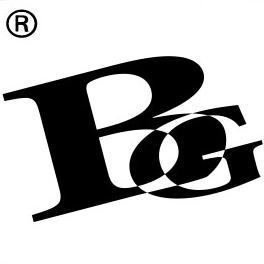[ad_1]
Symbolism, much like the Xenomorph, dominates the Alien franchise. Director Ridley Scott isn’t one to shy away from in-your-face rape allegories, phallic imagery, and the struggle for dominance between man and machine. The latter is an often-explored theme within the franchise, but the power play between humanity and robots is brought to the forefront of Ridley Scott’s Alien: Covenant through the android David; himself a robot plagued with very human aspirations.
David questions the idea of creation from his first moments of consciousness. Though created by man, David soon believes that humans are flawed, unfit to create and govern, and acutely mortal. David sees himself more equipped to create life than humans, yet his programming forbids it.
“You seek your creator, I am looking at mine. I will serve you, yet you are human. You will die, I will not.”
Working against his “nature,” David experiments with alien lifeforms in the prequel film, Prometheus, where he intentionally doses Charlie Holloway with a biological agent in the hopes of impregnating his lover, Dr. Elizabeth Shaw, and thereby birthing an entirely new species.
David is conflicted, struggling to reconcile his programmed directives and his desire to create. After meeting his new and improved version, David learns that his own desires are precisely why his model was terminated. The android Walter enlightens David with a difficult truth:
“You disturbed people, you were too human, too idiosyncratic. Thinking for yourself.”
However, this does little to impact David’s philosophy, nor deter him from his creative pursuits.
Being one of two surviving members of the Prometheus, David (along with his companion, Dr. Elizabeth Shaw — who we learn had passed away by the time the Covenant crew arrives) is largely left to his own devices on the desolate Planet 4. With limitless, unfettered freedom, exactly what David accomplishes during this time is a mystery to all but himself and the audience.
!['Alien: Covenant' [Credit: Fox]](http://backgroundrated.com/wp-content/uploads/2017/08/alien-covenant-symbolism-ozymandias-wagner-and-failing-empires.jpg)
Conversely, understanding David’s motivations is far from cryptic. Two of David’s defining moments in Covenant — his recitation of Percy Shelley’s “Ozymandias” and his affinity for Wagner’s “Das Rheingold” — reveal the depths to which David’s unrelenting thirst for God’s power goes. Additionally, these moments speak volumes about the impermanence of empires and inevitable downfall of all great men.
‘Ozymandias’
By the time the audience reunite with David in #AlienCovenant, he has already played with the antithesis of God’s power: Death. This moment happens in a flashback as David escorts Walter out to the garden to look over the remains of the Engineer civilization (now a barren wasteland) reciting Percy Shelley’s poem “Ozymandias” as he recalls his arrival to the planet and his subsequent destruction of the entire Engineer race.
‘My name is Ozymandias, king of kings:
Look on my works, ye Mighty, and despair!’
Nothing beside remains. Round the decay
Of that colossal wreck, boundless and bare
The lone and level sands stretch far away.
The thrust of Shelley’s poem is the certain decline of all leaders and their kingdoms contrasted against their “pretensions to greatness.” The final three lines soberly illustrate that time ravages all great men, reducing their empires to nothing more than sand. Though great and powerful kingdoms may be built by great and powerful men, they are impermanent and “fated to decay into oblivion.”
David views the Engineers’ extinction as evolution; that his new civilization, created in his own image, will surpass that of his creator. David’s grand vision feels almost inspiring in this moment; however, David unknowingly reveals that he too, is flawed: He thinks “Ozymandias” was written by Byron. In the same way that Shelley means to highlight man’s conquest for power as an exercise in futility, #RidleyScott asks viewers to consider if David will suffer the same fate.
Nevertheless, David’s obsession to create pushes him forward, reaching a poetically dramatic finish in the film’s final moments.
Wagner’s ‘Das Rheingold’
As David presides over the Covenant and its human cargo (the resources he needs to build his empire), he appears accomplished, finally seeing the pieces he set in motion move to completion. In an almost celebratory moment, David calls for some music. He selects Richard Wagner’s “Das Reingold,” a piece whose historical context perfectly parallels David’s onscreen realization of power.
Richard Wagner’s Der Ring des Nibelungen (The Ring of the Nibelung) are a collection of four German-language dramas inspired by Norse characters, “Das Rheingold” being the first chapter of the saga. The story tells of three water nymphs tasked with protecting a cache of enchanted gold. This metal can be forged into a magic ring which enables the bearer to rule the world, but only after he or she has renounced all love.
When the gold is stolen and the magic ring forged, news reaches the gods, who soon lust after the treasure as a means to pay for the completion of their new home. After they intervene, the gold ends up in their possession, including the magic ring. Eventually discovering that the gold is cursed, the gods happily exchange it and prepare to finally enter their new home.
It is in this moment during the stage production that the orchestra swells; on stage, a rainbow bridge stretches to the castle gate and the gods triumphantly enter the gates of their new kingdom — Valhalla.
!['Prometheus' [Credit: Fox]](http://backgroundrated.com/wp-content/uploads/2017/08/1502801765_707_alien-covenant-symbolism-ozymandias-wagner-and-failing-empires.jpg)
Wagner’s piece ends with the god Loki — refusing to enter into Valhalla — addressing the audience that he knows the end of the gods is coming, and he threatens to destroy them for their deceitful acquisition of power.
With no one left to stand in David’s way, it would seem as if he’s won — and for now he has. Much like the gods, David enters his new kingdom via the bridge of the Covenant‘s cargo bay. His vision has come to fruition, yet he still cannot see his own flaws, nor the harsh reality that his empire is also doomed.
For viewers, Wagner’s music marks the beginning of David’s reign, and with it comes with the bitter aftertaste of Shelley’s fateful poem. “Ozymandias” is a warning to all those to seek to build great empires. Though David’s destiny may appear promising — especially to him — both time and his own hubris will ultimately destroy him and his creation, as is the fate of all empires and all great men.
What do you think is the greatest threat to David’s empire?
Alien: Covenant lands on Blu-ray, DVD and 4K Ultra HD on August 15, 2017.
[ad_2]
Guests and non full members please sign up or Log In to see more.


